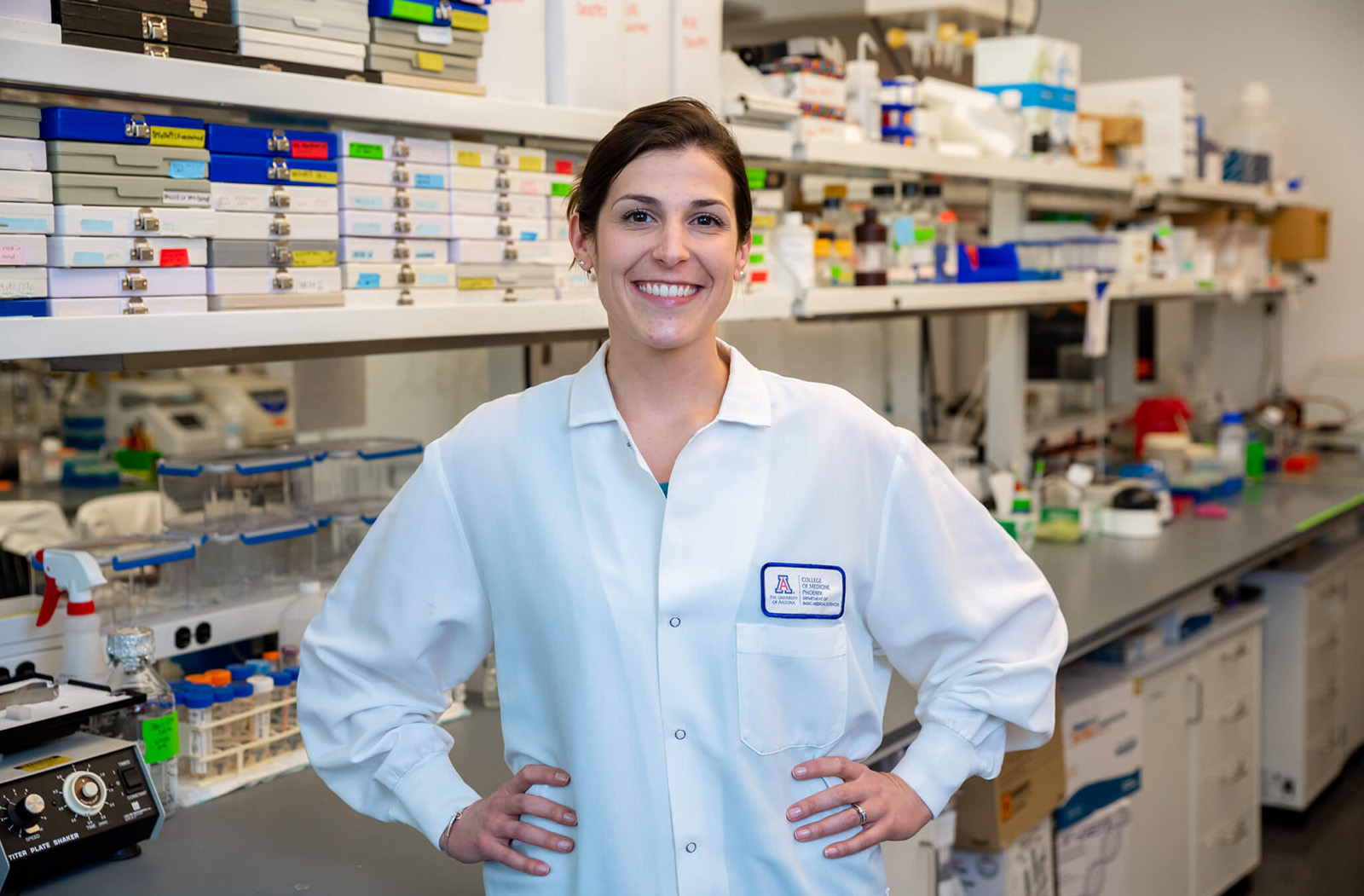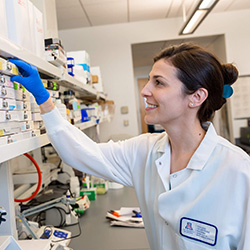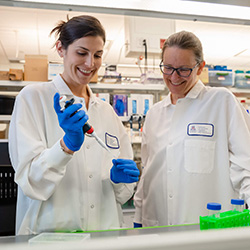
Sarver Heart Center Awards Grant to Postdoctoral Researcher at the College

Alexandra “Bobbie” Garvin, PhD, a postdoctoral research fellow in the Department of Basic Medical Sciences (BMS) at the University of Arizona College of Medicine – Phoenix, has been awarded a U of A Sarver Heart Center grant for her work entitled, “Prohibitin as a Novel Therapeutic Target for Cardiac Fibrosis.”

A physiologist by training, Dr. Garvin developed her passion for cardiovascular disease as she studied the increased risk for mortality women face after suffering a heart attack. “As a woman in science, this subject created a certain personal link to my work,” she said.
Her current research — which led to the award — is focused on the mechanisms of cardiac injury and adverse remodeling in the heart that leads to heart failure. Often, fibrosis — a deposition of stiff fibers mediated by the cardiac fibroblast — is a key process in the progression of heart failure, a disease that effects roughly 6 million Americans.
There are currently no treatments to stop or reverse fibrosis. The grant from the Sarver Heart Center will allow Dr. Garvin to further investigate the role for the mitochondrial protein, prohibitin, in activated cardiac fibroblast cell fate. “This project looks to use the power of the mitochondria to control cell survival and use it to mediate cell death of these pathological activated cardiac fibroblasts — therefore ‘turning off’ the signal for fibrosis,” she explained.
The findings could be potentially significant for clinical outcomes, possibly reducing the percentage of patients who’ve experienced hypertension or heart attacks from progressing into heart failure.

She also credits Christopher Glembotski, PhD, associate dean of Research and director of the Translational Cardiovascular Research Center, for the valuable mentorship he’s provided her since he joined the college in August 2020.
The guidance both he and Dr. Hale have given has informed her research experiences at the college and inspired her to give back one day.
“My pre- and postdoctoral training have truly provided a unique research niche for my future plans,” she said. And with the goal of one day running her own academic research lab, she will continue working toward, “Elucidating novel therapeutic targets for heart failure, while also paying-it-forward by providing mentorship for the next generation of scientists.”
About the College
Founded in 2007, the University of Arizona College of Medicine – Phoenix inspires and trains exemplary physicians, scientists and leaders to advance its core missions in education, research, clinical care and service to communities across Arizona. The college’s strength lies in our collaborations and partnerships with clinical affiliates, community organizations and industry sponsors. With our primary affiliate, Banner Health, we are recognized as the premier academic medical center in Phoenix. As an anchor institution of the Phoenix Bioscience Core, the college is home to signature research programs in neurosciences, cardiopulmonary diseases, immunology, informatics and metabolism. These focus areas uniquely position us to drive biomedical research and bolster economic development in the region.
As an urban institution with strong roots in rural and tribal health, the college has graduated more than 1,000 physicians and matriculates 130 students each year. Greater than 60% of matriculating students are from Arizona and many continue training at our GME sponsored residency programs, ultimately pursuing local academic and community-based opportunities. While our traditional four-year program continues to thrive, we will launch our recently approved accelerated three-year medical student curriculum with exclusive focus on primary care. This program is designed to further enhance workforce retention needs across Arizona.
The college has embarked on our strategic plan for 2025 to 2030. Learn more.